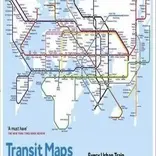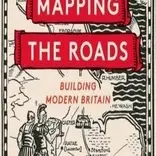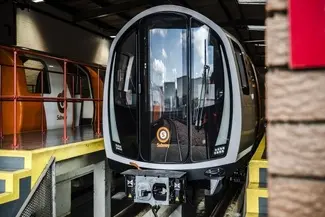|
Code:
71192
|
Google uses anonymised data to manage traffic congestion

TIN news: Google aims to use aggregate, anonymised data about historical traffic patterns to address growing traffic issues related to urban areas.
With half of the world's population residing in urban localities, and the number expected to increase by two billion over the next 30 years, over-stressed public transit infrastructure and increased road congestion will be issues that cities would face.
Google has been working with a small group of research partners in the European Union (EU) and the US to see if anonymised data about historical traffic patterns can resolve these issues.
With half of the world's population residing in urban localities, and the number expected to increase by two billion over the next 30 years, over-stressed public transit infrastructure and increased road congestion will be issues that cities would face.
Google has been working with a small group of research partners in the European Union (EU) and the US to see if anonymised data about historical traffic patterns can resolve these issues.
"We're seeking to build partnerships with cities and research institutions to evaluate ideas and run experiments, ultimately improving urban mobility for everyone."
In collaboration with its partners, Google has initiated a series of pilot projects to discover ways to minimise traffic congestion, decrease travel time, enhance safety and reduce the amount of money spent on infrastructure.
The company has been working with KTH Royal Institute of Technology in Stockholm, Sweden, to reduce the number of tunnel closures on the SödraLänken, the second longest urban motorway tunnel in Europe.
This will save travel time for motorists and help speed up their journeys.
In the Netherlands, Google is undertaking its research with the Netherlands Organization for Applied Scientific Research (TNO) to explore possibilities of reducing dependence on expensive physical road sensors used to collect information about traffic flows, which aims to lower infrastructure costs without compromising traffic safety.
The company shares aggregate, anonymised snapshots of historical traffic statistics with these institutions, including on average traffic speed, relative traffic volumes and traffic patterns.
The statistics are derived from aggregate location history data that Google users share with the company.
Only representative models of aggregate data are shared by employing a differential privacy technique to ensure that no user's journey can be identified.
Successfully tested in Chrome, the technique intentionally adds 'noise' to the data in a way that maintains both user privacy and the data accuracy.
The company claims that the preliminary results have been positive.
In the Netherlands, TNO used anonymised data to run a test on a 10km stretch of highway that regularly faces traffic jams.
Time and location of the congestions were accurately recorded even without using the physical road sensors, thereby saving almost €50,000 (US$53,120) a year if the age-old sensors were removed.
Other projects too are beginning to show positive results, the company claimed.
Google engineering director Andrew Eland said: "We're seeking to build partnerships with cities and research institutions to evaluate ideas and run experiments, ultimately improving urban mobility for everyone."
The company has been working with KTH Royal Institute of Technology in Stockholm, Sweden, to reduce the number of tunnel closures on the SödraLänken, the second longest urban motorway tunnel in Europe.
This will save travel time for motorists and help speed up their journeys.
In the Netherlands, Google is undertaking its research with the Netherlands Organization for Applied Scientific Research (TNO) to explore possibilities of reducing dependence on expensive physical road sensors used to collect information about traffic flows, which aims to lower infrastructure costs without compromising traffic safety.
The company shares aggregate, anonymised snapshots of historical traffic statistics with these institutions, including on average traffic speed, relative traffic volumes and traffic patterns.
The statistics are derived from aggregate location history data that Google users share with the company.
Only representative models of aggregate data are shared by employing a differential privacy technique to ensure that no user's journey can be identified.
Successfully tested in Chrome, the technique intentionally adds 'noise' to the data in a way that maintains both user privacy and the data accuracy.
The company claims that the preliminary results have been positive.
In the Netherlands, TNO used anonymised data to run a test on a 10km stretch of highway that regularly faces traffic jams.
Time and location of the congestions were accurately recorded even without using the physical road sensors, thereby saving almost €50,000 (US$53,120) a year if the age-old sensors were removed.
Other projects too are beginning to show positive results, the company claimed.
Google engineering director Andrew Eland said: "We're seeking to build partnerships with cities and research institutions to evaluate ideas and run experiments, ultimately improving urban mobility for everyone."















![AIRBUS A380 [MORE THAN 600 PASSENGER’S CAPACITY PLANE]](https://cdn.tinn.ir/thumbnail/4jCp4EQvCU0b/IjHVrSYQrIAqIzXuTzADR7qLYX4idQT4nfq__26E5SCUPLMqfhWkWajvuO9Wfq1ql1TjV4dhkrHliNQU82kMpo2NNftT_NGEwHc9KXtN_rk731bmifa2IQ,,/airbus-a380-structure1.jpg)

Send Comment